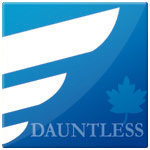Introduction
Traditionally, amateur radio operators were issued two separate
authorizations; an Amateur Radio Operator Certificate and a radio
station licence. The Amateur Radio Operator Certificate was issued for
life and had no fee associated with it, while the radio station
licence was issued on a yearly basis and a licence renewal fee was
charged.
Effective April 1, 2000, Industry Canada has combined these documents
into one authorization, the Amateur Radio Operator Certificate. This
certificate is the sole authorization required to operate amateur
radio apparatus in the amateur radio service.
Although it is no longer necessary for amateurs to renew their licence
annually, they are required to inform Industry Canada of any changes
in their mailing address.
How to Obtain an Amateur Radio Operator
Certificate
All administrative activities for amateur radio, e.g. the issuance of
amateur radio operator certificates and call signs, changes of mailing
address and requests for special event or special prefix call signs,
are carried out from a central location: the Amateur Radio Service Centre.
If you are the holder of an Amateur Radio Operator Certificate issued
before April 1, 2000, you may obtain a new certificate with a call
sign by completing the application form
available on our Internet Web site.
If you are not currently an amateur radio operator but wish to become
one, please consult the Radiocommunication Information Circular 3
(RIC-3), Information on the Amateur Radio
Service.
Certificate Examinations
There are two means by which an individual may obtain the Amateur
Radio Operator Certificate with Basic, Morse code, and Advanced
Qualifications. They may:
- be examined by an accredited examiner; or
- be examined at the local district office of Industry Canada.
The HamExam.ca software and apps contain the actual questions that you will see on your exam and should be used to prepare for the exams in a highly effective way.
Accredited Examiners
Accredited examiners are available in many areas throughout Canada to
provide both Morse code and written examinations on behalf of Industry
Canada. They may be contacted through amateur radio clubs, technical
schools or the Amateur Radio
Service Centre.
Information regarding the accredited examiner program can be found in
the Radiocommunication Information Circular 1 (RIC-1), Guide for Examiners Accredited to Conduct
Examinations for the Amateur Radio Operator Certificate.
How to Obtain a Call Sign
Complete the Application and Report for Amateur Radio Operator
Certificate and Call Sign, which is available from the Amateur
Radio Service Centre.
Please note that a call sign in the amateur service can only be issued
to a person who holds an Amateur Radio Operator Certificate with Basic
Qualification.
When completing the section, "Personal Choice of Call sign",
please consult the Amateur Radio Operator Cetificate Services website at www.ic.gc.ca/callsign to confirm what call signs are
available. This will increase the chances of your being assigned the call sign
of
your choice. If you do not indicate your choice of call sign, or if
none of your three choices are available, you will be automatically
issued the next available call sign.
The call sign will be issued using a prefix based on where the
applicant resides. Prefixes currently used for assignment are in
accordance with the following table:
| Prefix |
Province/Territory |
| VE1 VA1 |
Nova Scotia |
| VE2 VA2 |
Quebec |
| VE3 VA3 |
Ontario |
| VE4 VA4 |
Manitoba |
| VE5 VA5 |
Saskatchewan |
| VE6 VA6 |
Alberta |
| VE7 VA7 |
British Columbia |
| VE8 |
Northwest Territories |
| VE9 |
New Brunswick |
| VE0* |
International Waters |
| VO1 |
Newfoundland |
| VO2 |
Labrador |
| VY1 |
Yukon Territory |
| VY2 |
Prince Edward Island |
| VY0 |
Nunavut Territory |
*VE0 call signs are only intended for use when the amateur radio
station is operated from vessels that make international voyages.
The application must be sent by mail, fax or e-mail to the Amateur
Radio Service Centre.
For detailed information on the Call Sign Policy and Special Event
Prefixes, please refer to RIC-9.
Fees
A fee is not required for the issuance of an Amateur Radio Operator
Certificate in accordance with the following:
-
to issue an initial station call sign and Amateur Radio Operator
Certificate with Basic Qualification;
- to issue a replacement certificate due to loss or damage;
-
to issue a replacement certificate with a new call sign, due to a
change in address to a new province or territory; and
- to issue a replacement certificate as a result of obtaining an
additional qualification such as Morse code, or Advanced.
A fee of $60.00 is required for the issuance of an Amateur Radio
Operator Certificate in accordance with the following:
- to change an existing call sign (including changing to a two letter
call sign);
- to issue a call sign to the station of a club or other
organization;
- to issue an amateur radio operator an additional station call sign;
and
- to issue a special event or special prefix station call sign.
How to Operate your Amateur Radio Station
Please refer to the Regulation by Reference (RBR-4),
Standards for the Operation of Radio
Stations in the Amateur Radio Service.
International Agreements
The Radiocommunication Information Circular 3 (RIC-3), Information on the Amateur Radio Service,
provides information on various international agreements and
arrangements related to amateur radio operation.
Canada has negotiated a number of reciprocal operating agreements that
allow Canadian amateurs to operate their stations while temporarily
visiting other countries, and also allow foreign visitors to operate
in Canada on a reciprocal basis.
Amateur Radio Service Centre
Contact Information
For additional information, please contact the Amateur Radio Service
Centre:
Industry Canada
Amateur Radio Service Centre
2 Queen Street East
Sault Ste. Marie, ON
P6A 1Y3
E-mail address: spectrum.amateur@ic.gc.ca
Telephone: 1-888-780-3333 (Toll free)
Fax number: 1-705-941-4607

